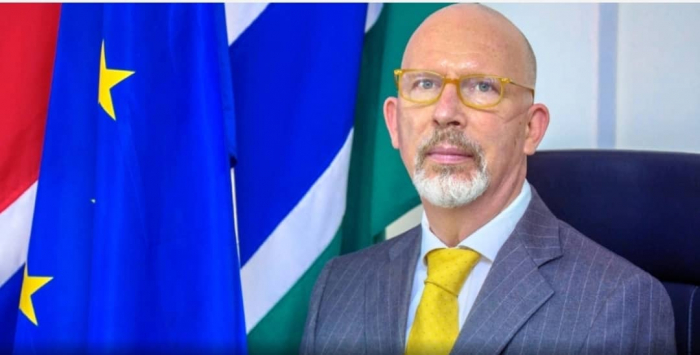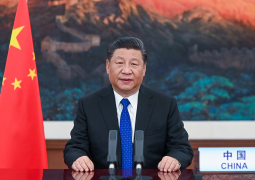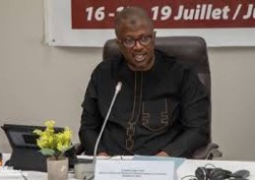
Like the Fijians, most Gambians travel between five to seven hours by land across the border to neighbouring Dakar, Senegal, to apply for a travel visa (Schengen) to Europe. After few years of negotiations, Fijians can now take their passport to a private agency within their country, which is entitled to collect the biometric data and process the visa in cooperation with the relevant Consulates situated up to a twenty-four hours flight from Fiji.
However, Gambians too could turn their backs to this challenge one day, if a similar arrangement could be obtained in their country.
In Fiji, thanks to the coordination of the local European Delegation where, His Excellency, Mr. Corrado Pampaloni was posted at that time, and the Member States adhering to Schengen, the difficult situation of traveling around half of the globe to get a visa was put to an end by means of this agreement.
In an interview at his office, the same diplomat who assumed office early 2021 in Banjul at the height of bilateral challenge between the EU and Banjul over migration policies, told The Point last Thursday that The Gambia could hypothetically benefit from similar gesture that would enable her citizens to apply visa in Banjul instead of travelling to Dakar and staying days for appointment, interviews and outcomes – all at a cost to the applicant.
“We managed to convince some Capitals of the Member States to contract an agency for a passports and data collection department in Suva, and deliver the applications each week, of course with a cost on member states, although the applicant has to pay a fee. Obviously there has to be economic justifications for the services. Luckily, Fiji had already an agency locally doing visa application services for the UK, Norway and Canada” he explained.
Once described by international relation analysts as one of the EU’s favorites after the change of government, The Gambia recently managed to end up on the list of three countries to which the EU may apply visa restrictions. This may happen if the country continues to maintain a non-cooperative stance on the repatriation of her citizens due for return from EU countries.
In 2015, a record number of people tried to reach Europe by all means, often risking their lives along their journeys. Although the number of irregular arrivals in the EU today is back to pre-crisis levels, immigration remains one of the key concerns of European citizens and is expected to remain a challenge for years to come.
In the interview last week, Ambassador Pampaloni said he prefers open dialogue to “action-reaction” diplomacy. Therefore he continues to engage Banjul through dialogue over any matters between the two countries, as far as migration issues and other matters are concerned with the aim of smoothing the differences and come to a mutual understanding. “After all Banjul and Brussels have excellent relations in so many other fields and we need to capitalise on that,” he said.
Asked if there would be a time that the EU will adopt legal pathways to enter Europe, the diplomat said that this great tool is already part of the important policy package of the European Countries and a part of the concept that is behind Dublin III.
“Entering the EU as a non-European is not too difficult for people from stable countries. Those planning to visit one or more EU Member States can get in as a tourist, with a visa. If the intention is to live and work for a longer period, they can use the many possibilities offered by labour migration. Regular mobility schemes also include provisions for other categories such as students, researchers, au pairs and voluntary workers. People wishing to join a family member who is already residing legally in the EU might even be eligible for family reunification,” he said.
“Under the Erasmus Plus Plusprogramme, the EU allows exchange for university students with outstanding background to pursue their education in Europe at no cost other than their own support. Then they return to their countries upon completion. EU is currently pursuing several options that allow legal pathways to migration, including education, skills training, among others. Europe will rather have qualified migration – allowing people with employable skills into Europe to find jobs and integrate in Europe legally,” he further explained.
EU’s diplomatic mission to The Gambia was upgraded from an antenna having a Charge de Affairs as head of the mission to a full Embassy having an Ambassador in 2015. In the former format, the mission was overseen by the EU Embassy in Dakar, and had limited staff and diplomatic functions. The EU is one of the great supporters of the democratic change that occurred in 2017 and co-chaired with The Gambia the International Conference for The Gambia, held in Brussels in 2018, where 1.45 billion Euros have been pledged to help the effort to the democratic transition.
“If we engage some key Member States over the visa and consular services issue, I hope that in a near future we will be able to reach this… Gambia deserves an agency for consular services” he said.
Read Other Articles In Headlines





